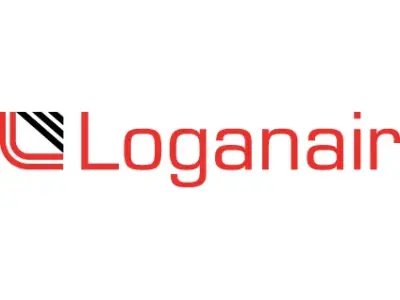Dorchester Collection Fills More Rooms With Sharper Forecasting
In the hospitality sector, an empty room overnight means revenue lost forever. To gain rapid insight into future occupancy, the Dorchester Collection hotels group developed integrated hospitality budgeting, planning, and forecasting across its properties, helping to generate promotions to optimise sales and improve margins.
Details
Company Name: Dorchester Collection
Website: www.dorchestercollection.com
Established in 1996, Dorchester Collection is a world-famous luxury hotels, restaurants, and residences group, employing around 3,500 people, and operating prestige properties in Dubai, the UK, France, Italy, and the US. For the Dorchester Collection’s 10 hotels, understanding and predicting occupancy is central to delivering the group’s famously superlative service. Advance knowledge of the number of guests, rooms, and length of stay impacts staffing, catering, cleaning, laundry, and all the services that bring hospitality to life.
located in Ascot, Dubai, Milan, London, Los Angeles, Paris, and Rome
Employees working across luxury properties globally
rolling forecasts to optimize occupancy and sales
reduced report generation time from 2 days to 5 minutes
The Challenge
From the business perspective, when the clocks tick over at midnight, a hotel’s unsold rooms become a lost opportunity. Knowing likely occupancy well in advance enables marketing teams to plan promotions and adjust pricing to help maximise sales and secure these opportunities.
To create annual and rolling three-month forecasts, the financial team at Dorchester Collection devoted significant time to collating and consolidating information delivered by each hotel in spreadsheet format. In addition, each of the group’s 10 hotels sent weekly updates, resulting in a constant flood of new data to be manually checked, integrated, and analysed.

“With a complex mix of group and individual pricing, length of stay, and seasonal variations, ours is a very dynamic and even volatile model, unique to the hospitality industry. As the weekly updated forecasts arrived and as we received the actuals each week, comparing data and presenting a clear picture to the board became almost impossible.
The Solution
No room for spreadsheets
With previous experience in integrated planning and analytics, Iben Botha enrolled the Dorchester Collection team in the capabilities of IBM TM1, starting the process of moving away from spreadsheets.
“While there are dedicated solutions for large hospitality groups, the hotels in the Dorchester Collection are very different from each other and operate in their individual ways,” says Botha. “IBM TM1 offers an agile solution that could be configured to suit our bespoke business, and that would work well and cost-effectively.”
The initial deployment of IBM TM1 quickly demonstrated potential, and Dorchester Collection looked forward to taking planning and analysis to the next level.
“TM1 could help us plan our variable costs more accurately in a way that was not possible with spreadsheets,” notes Botha. “For example, reduced occupancy means fewer people at breakfast or smaller numbers of spa visits, affecting our staffing, operations and payroll in a very complex, interlinked set of dependencies.”
Yet as Dorchester Collection developed its TM1 expertise, the on-premises IT systems running the software struggled to meet demand. On some occasions, the calculations took multiple hours, stalled as the system ran out of resources, or crashed. To unlock the true value of TM1, Dorchester Collection looked to solve its technology capacity issues, building a solution that could deliver insights fast and reliably.
Our Approach
To resolve capacity and performance issues, Budgeting Solutions provided a fully managed cloud migration service, replacing limited local hardware with scalable, near-limitless resources available on the IBM Cloud.
“Budgeting Solutions provided consultancy, advice, and technical assistance at every stage, and even committed to days at no additional cost,” recalls Botha. “There were many moments where Budgeting Solutions put service to Dorchester Collection first, which helped to build a long-term and very successful relationship.”

Putting the guests first
With the technical work complete, Budgeting Solutions and Dorchester Collection created a programme to fine-tune existing reports and build a fully integrated forecasting and analysis engine.
“Where previously each hotel emailed us the results of their own spreadsheet calculations – such as cost per room occupied or restaurant cover – we now take their raw data and run the report centrally. That way, we can look at predicted occupancy against actual occupancy, and review how the associated variable costs affect profitability,” says Botha. “Working with the experts from Budgeting Solutions, we are bringing more of the calculations into the solution so that we start from a consistent base, helping us to optimise the cubes for performance and to gain the rapid insight that we need despite the complexity.”
The Results
Many of the previous challenges arising from spreadsheet working are now handled entirely within TM1. For example, it is now possible to compare any historic three-month forecast against any later revision simply by selecting the dates.
“In the early days, some of these reports were taking two days to produce, particularly when we were analysing forecast accuracy, tempting us to complete the final steps in spreadsheets,” explains Botha. “Today, we can reach the same data in five minutes, with a single click. The cube technology within TM1 is a game-changer, and you can instantly run enquiries with certainty, enabling the finance team to answer questions rapidly, effectively and efficiently.”
The team is now working on further functionality that will allow Dorchester Collection to deliver better service than ever. Enabling direct executive access through dashboards that show key data, with drill-down to underlying data for standard enquiries, for example, will help executives to make swift, data-informed decisions without waiting for reports from analysts.
“TM1 could help us plan our variable costs more accurately in a way that was not possible with spreadsheets,” notes Botha. “For example, reduced occupancy means fewer people at breakfast or smaller numbers of spa visits, affecting our staffing, operations and payroll in a very complex, interlinked set of dependencies.”
Botha concludes: “The responsiveness and expertise of the Budgeting Solutions team has created a great partnership, putting our guests first – which is where we always want to be.”
Key Takeaways
-
Cloud migration eliminated performance issues and delivered near-limitless scalability and reliability.
-
Forecast accuracy and reporting speed improved dramatically (from two days to five minutes).
-
TM1 cube technology eliminated reliance on spreadsheets.
- The finance team can run accurate occupancy and profitability analysis with a single click.
- Budgeting Solutions transformed Dorchester Collection’s forecasting from slow, spreadsheet-heavy processes into a fast, scalable, cloud-based system that drives smarter decisions.


